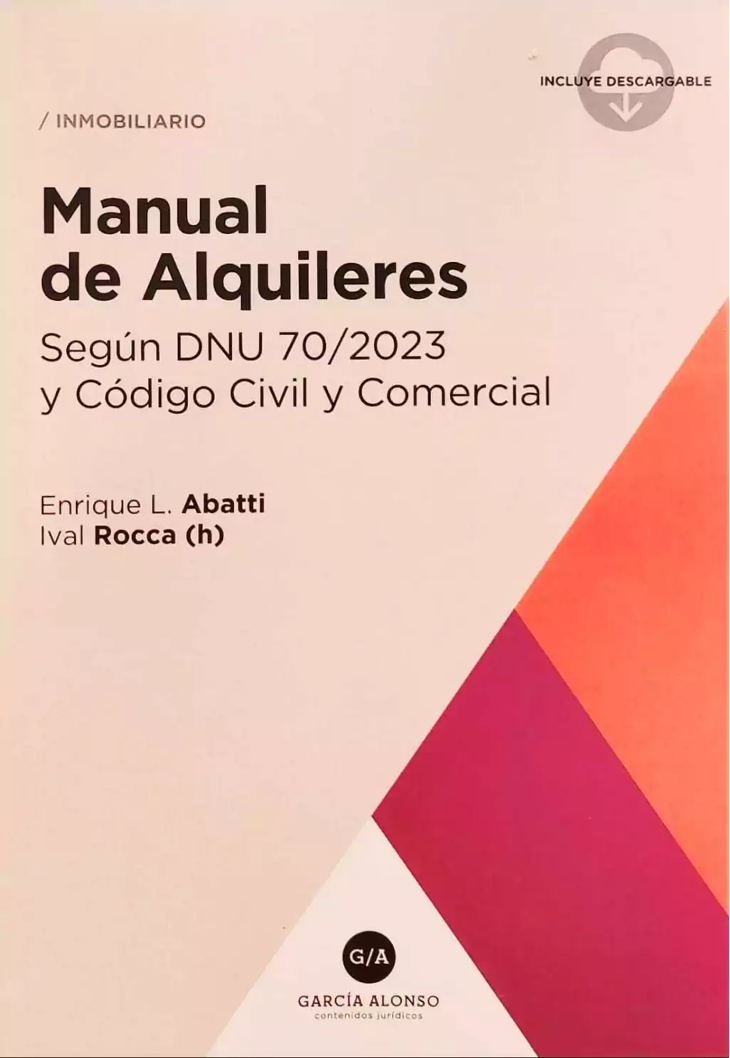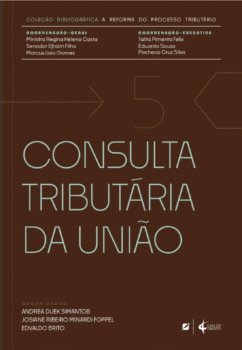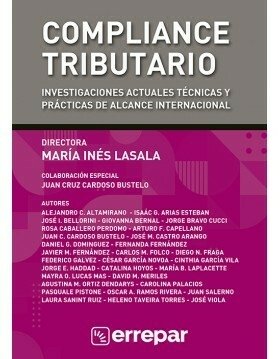OMC – Argentina: Se publican los informes del Grupo Especial en la diferencia sobre medidas de importación de la Argentina – DS 438; 445 Y 446 -.
El resumen que figura a continuación se actualizó el 22 de agosto de 2014
Consultas
Reclamación presentada por la Unión Europea – DS438,
El 25 de mayo de 2012, la Unión Europea solicitó la celebración de consultas con la Argentina con respecto a determinadas medidas impuestas por ese país a la importación de mercancías.
La Unión Europea impugna: i) la declaración exigida como condición para autorizar las importaciones; ii) los diversos tipos de licencias exigidos para importar determinadas mercancías; y iii) la supuesta demora sistemática en la concesión de la autorización de importación, la no concesión de dicha autorización o la supeditación de la misma a que los importadores asuman determinados compromisos que supuestamente restringen el comercio.
La Unión Europea alega que las medidas impugnadas parecen ser incompatibles con:
- el párrafo 4 del artículo III, el artículo VIII, los párrafos 1 y 3 del artículo X y el párrafo 1 del artículo XI del GATT de 1994;
- los párrafos 2, 3, 4, 5, 6 y 7 del artículo 1, el párrafo 2 del artículo 2 y los párrafos 2, 3, 4 y 5 del artículo 3 del Acuerdo sobre Licencias de Importación;
- el artículo 2 del Acuerdo sobre las MIC;
- el párrafo 2 del artículo 4 del Acuerdo sobre la Agricultura; y
- el artículo 11 del Acuerdo sobre Salvaguardias.
El 31 de mayo de 2012, Turquía solicitó ser asociada a las consultas. El 7 de junio de 2012, los Estados Unidos y Ucrania solicitaron ser asociados a las consultas. El 8 de junio de 2012, Australia, el Canadá, Guatemala y el Japón solicitaron ser asociados a las consultas. El 3 de julio de 2012, México solicitó ser asociado a las consultas. Posteriormente, la Argentina informó al OSD de que había aceptado las solicitudes de asociación a las consultas presentadas por Australia, el Canadá, los Estados Unidos, Guatemala, el Japón, México, Turquía y Ucrania. El 6 de diciembre de 2012, la Unión Europea solicitó el establecimiento de un grupo especial. En su reunión de 17 de diciembre de 2012, el OSD aplazó el establecimiento de un grupo especial.
Procedimientos del Grupo Especial y del Órgano de Apelación
En su reunión de 28 de enero de 2013, el OSD estableció, de conformidad con el párrafo 1 del artículo 9 del ESD, un único grupo especial para examinar esta diferencia y las diferencias DS444 y DS445. La Arabia Saudita, Australia, el Canadá, China, Corea, el Ecuador, los Estados Unidos, Guatemala, la India, el Japón, Noruega, Suiza, Tailandia, el Taipei Chino y Turquía se reservaron sus derechos en calidad de terceros. Posteriormente, Israel se reservó sus derechos en calidad de tercero. El 15 de mayo de 2013, la Unión Europea, los Estados Unidos y el Japón solicitaron al Director General que estableciera la composición del Grupo Especial. El 27 de mayo de 2013, el Director General así lo hizo. El 15 de noviembre de 2013, el Presidente del Grupo Especial informó al OSD de que esperaba dar traslado de su informe definitivo a las partes a finales de mayo de 2014 a más tardar, de conformidad con el calendario adoptado después de celebrar consultas con las partes. El 5 de mayo de 2014, el Presidente del Grupo Especial informó al OSD de que no se podría dar traslado del informe definitivo a las partes a finales de mayo de 2014 debido a la complejidad de la diferencia y al gran volumen de pruebas. El Grupo Especial estima que dará traslado de su informe definitivo a las partes a finales de junio de 2014 a más tardar, de conformidad con el calendario revisado adoptado después de celebrar consultas con las partes.
El informe del Grupo Especial se distribuyó a los Miembros el 22 de agosto de 2014.
| Resumen de las constataciones principales This dispute concerns two measures:
With respect to the DJAI procedure, the complainants (European Union, United States and Japan) requested the Panel to find that: (a) the DJAI procedure is an import restriction inconsistent with Article XI:1 of the GATT 1994; (b) the DJAI procedure is administered in a manner inconsistent with Argentina’s obligations under Article X:3(a) of the GATT 1994; and, (c) Argentina failed to publish promptly information relating to the operation of the DJAI procedure in the manner required by Article X:1 of the GATT 1994. The complainants presented a second line of arguments with respect to the DJAI procedure that were relevant only in the event that the DJAI procedure was found to be an import licence. In such case, the complainants argued that: (a) the DJAI procedure is an import restriction, made effective through an import licence, inconsistent with Article XI:1 of the GATT 1994; (b) the DJAI procedure is administered in a manner inconsistent with Argentina’s obligations under Articles 1.3, 1.6, 3.2, and 3.5(f) of the Import Licensing Agreement; (c) Argentina failed to publish promptly information relating to the operation of the DJAI procedure in the manner required by Articles 1.4(a) and 3.3 of the Import Licensing Agreement; and, (d) Argentina failed to notify the DJAI procedure in the manner required by Articles 1.4(a), 5.1, 5.2, 5.3, and 5.4 of the Import Licensing Agreement. With respect to Argentina’s imposition of TRRs, the complainants requested the Panel to make the following factual findings: (a) that the measure consists of a combination of one or more of the five trade-related requirements identified by the complainants; (b) that it is an unwritten measure “not stipulated in any published law or regulation”; (c) that the measure is imposed on economic operators in Argentina as a condition to import or to obtain certain benefits; (d) that the measure is enforced, inter alia, through the DJAI; and, (e) that the measure is imposed by the Argentine Government with the objective of eliminating trade deficits and increasing import substitution. The complainants advanced claims in respect of the TRRs under Articles XI:1 and X:1 of the GATT 1994. First, the complainants alleged that the TRRs imposed by Argentina have a limiting effect on the economic operators’ ability to import and, therefore, constitute a violation of Article XI:1 of the GATT 1994. Second, the complainants argued that the TRRs are inconsistent with Article X:1 of the GATT 1994 because Argentina failed to publish the measure promptly, thereby preventing governments and traders from becoming acquainted with it. Finally, the European Union and Japan further argued that the TRRs, in respect of the local content requirement, are inconsistent with Article III:4 of the GATT 1994, because they require economic operators to use domestic, instead of imported, products to achieve a specified level of local content. In addition, Japan requested separate findings concerning Articles III:4, X:1 and XI:1 of the GATT 1994 in respect of the TRRs “as such” and “as applied”. Argentina requested that the Panel reject the complainants’ claims. Argentina argued that the DJAI procedure is a customs or import formality subject to Article VIII of the GATT 1994 and therefore not subject to Article XI:1 of the GATT 1994 or the Import Licensing Agreement. Argentina also argued, with respect to the TRRs, that the complainants did not produce evidence of the existence of a single “overarching” measure with general and prospective application. In Argentina’s view, even if the Panel were to accept the complainants’ characterization of the evidence relating to the TRRs, at most this might indicate the existence of a series of individual one-off and isolated actions that concern a limited number of individual economic operators in a limited number of sectors, whose content varies considerably and lacks general and prospective application. With regard to the DJAI procedure, the Panel found that:
The Panel refrained from making any findings regarding the DJAI procedure with respect to the additional claims raised by the complainants under Article XI:1 of the GATT 1994, and Articles X:1 and X:3(a) of the GATT 1994, and several provisions of the Import Licensing Agreement (Articles 1.3, 1.4(a), 1.6, 3.2, 3.3, 3.5(f), 5.1, 5.2, 5.3, and 5.4). The Panel considered that additional findings were not necessary or useful in resolving the matter at issue.¨ With regard to the Trade-Related Requirements (TRRs), the Panel found that:
In addition, in response to Japan’s request, the Panel also found that the TRRs measure “as such” is inconsistent with Articles III:4 and XI:1 of the GATT 1994. The Panel also considered that an additional finding regarding the same measure under Article X:1 of the GATT 1994 was not necessary or useful in resolving the matter at issue. |
Resumen de la diferencia hasta la fecha
El resumen que figura a continuación se actualizó el 22 de agosto de 2014
Consultas
Reclamación presentada por los Estados Unidos DS445
El 21 de agosto de 2012, los Estados Unidos solicitaron la celebración de consultas con la Argentina respecto de determinadas medidas impuestas por la Argentina a la importación de mercancías.
Los Estados Unidos impugnan lo siguiente: i) el requisito de presentar para su validación una licencia de importación no automática: Declaración Jurada Anticipada de Importación (DJAI); ii) la exigencia de licencias no automáticas en forma de Certificados de Importación (CI) para la importación de determinadas mercancías; iii) los requisitos impuestos a los importadores de que asuman determinados compromisos que restringen el comercio; y iv) la supuesta demora en la validación o la supuesta denegación de la misma, de forma sistemática, o la supeditación de la validación a que los importadores asuman determinados compromisos que supuestamente restringen el comercio.
Los Estados Unidos alegan que las medidas impugnadas parecen ser incompatibles con:
- el párrafo 4 del artículo III, los párrafos 1, 2 y 3 a) del artículo X y el párrafo 1 del artículo XI del GATT de 1994;
- el artículo 2 del Acuerdo sobre las MIC;
- los párrafos 2, 3 y 4 del artículo 1, los párrafos 2, 3, 4 y 5 del artículo 3 y los párrafos 1, 2, 3 y 4 del artículo 5 del Acuerdo sobre Procedimientos para el Trámite de Licencias de Importación; y
- el artículo 11 del Acuerdo sobre Salvaguardias.
El 24 de agosto de 2012, México solicitó ser asociado a las consultas. El 29 de agosto de 2012, Turquía solicitó ser asociada a las consultas. El 30 de agosto de 2012, Guatemala y la Unión Europea solicitaron ser asociadas a las consultas. El 31 de agosto de 2012, Australia, el Canadá y el Japón solicitaron ser asociados a las consultas. Posteriormente, la Argentina informó al OSD de que había aceptado las solicitudes de asociación a las consultas presentadas por Australia, el Canadá, Guatemala, el Japón, México, Turquía y la Unión Europea. El 6 de diciembre de 2012, los Estados Unidos solicitaron el establecimiento de un grupo especial. En su reunión de 17 de diciembre de 2012, el OSD aplazó el establecimiento de un grupo especial.
Procedimientos del Grupo Especial y del Órgano de Apelación
En su reunión de 28 de enero de 2013, el OSD estableció, de conformidad con el párrafo 1 del artículo 9 del ESD, un único grupo especial para examinar esta diferencia y las diferencias DS438 y DS445. La Arabia Saudita, Australia, el Canadá, China, Corea, el Ecuador, Guatemala, la India, el Japón, Noruega, Suiza, Tailandia, el Taipei Chino, Turquía y la Unión Europea se reservaron sus derechos en calidad de terceros. Posteriormente, Israel se reservó sus derechos en calidad de tercero. El 15 de mayo de 2013, la Unión Europea, los Estados Unidos y el Japón solicitaron al Director General que estableciera la composición del Grupo Especial. El 27 de mayo de 2013, el Director General así lo hizo. El 15 de noviembre de 2013, el Presidente del Grupo Especial informó al OSD de que esperaba dar traslado de su informe definitivo a las partes a finales de mayo de 2014 a más tardar, de conformidad con el calendario adoptado después de celebrar consultas con las partes. El 5 de mayo de 2014, el Presidente del Grupo Especial informó al OSD de que no se podría dar traslado del informe definitivo a las partes a finales de mayo de 2014 debido a la complejidad de la diferencia y al gran volumen de pruebas. El Grupo Especial estima que dará traslado de su informe definitivo a las partes a finales de junio de 2014 a más tardar, de conformidad con el calendario revisado adoptado después de celebrar consultas con las partes.
El informe del Grupo Especial se distribuyó a los Miembros el 22 de agosto de 2014.
| Resumen de las constataciones principales This dispute concerns two measures:
With respect to the DJAI procedure, the complainants (European Union, United States and Japan) requested the Panel to find that: (a) the DJAI procedure is an import restriction inconsistent with Article XI:1 of the GATT 1994; (b) the DJAI procedure is administered in a manner inconsistent with Argentina’s obligations under Article X:3(a) of the GATT 1994; and, (c) Argentina failed to publish promptly information relating to the operation of the DJAI procedure in the manner required by Article X:1 of the GATT 1994. The complainants presented a second line of arguments with respect to the DJAI procedure that were relevant only in the event that the DJAI procedure was found to be an import licence. In such case, the complainants argued that: (a) the DJAI procedure is an import restriction, made effective through an import licence, inconsistent with Article XI:1 of the GATT 1994; (b) the DJAI procedure is administered in a manner inconsistent with Argentina’s obligations under Articles 1.3, 1.6, 3.2, and 3.5(f) of the Import Licensing Agreement; (c) Argentina failed to publish promptly information relating to the operation of the DJAI procedure in the manner required by Articles 1.4(a) and 3.3 of the Import Licensing Agreement; and, (d) Argentina failed to notify the DJAI procedure in the manner required by Articles 1.4(a), 5.1, 5.2, 5.3, and 5.4 of the Import Licensing Agreement. With respect to Argentina’s imposition of TRRs, the complainants requested the Panel to make the following factual findings: (a) that the measure consists of a combination of one or more of the five trade-related requirements identified by the complainants; (b) that it is an unwritten measure “not stipulated in any published law or regulation”; (c) that the measure is imposed on economic operators in Argentina as a condition to import or to obtain certain benefits; (d) that the measure is enforced, inter alia, through the DJAI; and, (e) that the measure is imposed by the Argentine Government with the objective of eliminating trade deficits and increasing import substitution. The complainants advanced claims in respect of the TRRs under Articles XI:1 and X:1 of the GATT 1994. First, the complainants alleged that the TRRs imposed by Argentina have a limiting effect on the economic operators’ ability to import and, therefore, constitute a violation of Article XI:1 of the GATT 1994. Second, the complainants argued that the TRRs are inconsistent with Article X:1 of the GATT 1994 because Argentina failed to publish the measure promptly, thereby preventing governments and traders from becoming acquainted with it. Finally, the European Union and Japan further argued that the TRRs, in respect of the local content requirement, are inconsistent with Article III:4 of the GATT 1994, because they require economic operators to use domestic, instead of imported, products to achieve a specified level of local content. In addition, Japan requested separate findings concerning Articles III:4, X:1 and XI:1 of the GATT 1994 in respect of the TRRs “as such” and “as applied”. Argentina requested that the Panel reject the complainants’ claims. Argentina argued that the DJAI procedure is a customs or import formality subject to Article VIII of the GATT 1994 and therefore not subject to Article XI:1 of the GATT 1994 or the Import Licensing Agreement. Argentina also argued, with respect to the TRRs, that the complainants did not produce evidence of the existence of a single “overarching” measure with general and prospective application. In Argentina’s view, even if the Panel were to accept the complainants’ characterization of the evidence relating to the TRRs, at most this might indicate the existence of a series of individual one-off and isolated actions that concern a limited number of individual economic operators in a limited number of sectors, whose content varies considerably and lacks general and prospective application. With regard to the DJAI procedure, the Panel found that:
The Panel refrained from making any findings regarding the DJAI procedure with respect to the additional claims raised by the complainants under Article XI:1 of the GATT 1994, and Articles X:1 and X:3(a) of the GATT 1994, and several provisions of the Import Licensing Agreement (Articles 1.3, 1.4(a), 1.6, 3.2, 3.3, 3.5(f), 5.1, 5.2, 5.3, and 5.4). The Panel considered that additional findings were not necessary or useful in resolving the matter at issue.¨ With regard to the Trade-Related Requirements (TRRs), the Panel found that:
In addition, in response to Japan’s request, the Panel also found that the TRRs measure “as such” is inconsistent with Articles III:4 and XI:1 of the GATT 1994. The Panel also considered that an additional finding regarding the same measure under Article X:1 of the GATT 1994 was not necessary or useful in resolving the matter at issue. | ||
Resumen de la diferencia hasta la fecha volver al principio
El resumen que figura a continuación se actualizó el 22 de agosto de 2014
Consultas
Reclamación presentada por el Japón – DS446
El 21 de agosto de 2012, el Japón solicitó la celebración de consultas con la Argentina respecto de determinadas medidas impuestas por la Argentina a la importación de mercancías.
El Japón impugna lo siguiente: i) el requisito de presentar para su validación una licencia de importación no automática: Declaración Jurada Anticipada de Importación (DJAI); ii) la exigencia de licencias no automáticas en forma de Certificados de Importación (CI) para la importación de determinadas mercancías; iii) los requisitos impuestos a los importadores de que asuman determinados compromisos que restringen el comercio; y iv) la supuesta demora en la validación o la supuesta denegación de la misma, de forma sistemática, o la supeditación de la validación a que los importadores asuman determinados compromisos que supuestamente restringen el comercio.
El Japón alega que las medidas impugnadas parecen ser incompatibles con:
- el párrafo 4 del artículo III, el artículo VIII, los párrafos 1, 2 y 3 del artículo X y el párrafo 1 del artículo XI del GATT de 1994;
- el artículo 2 y el párrafo 1 del artículo 6 del Acuerdo sobre las MIC;
- los párrafos 2, 3, 4, 5, 6 y 7 del artículo 1, el párrafo 2 del artículo 2, los párrafos 2, 3, 4 y 5 del artículo 3 y los párrafos 1, 2, 3 y 4 del artículo 5 del Acuerdo sobre Procedimientos para el Trámite de Licencias de Importación; y
- el artículo 11 del Acuerdo sobre Salvaguardias.
El 24 de agosto de 2012, México solicitó ser asociado a las consultas. El 29 de agosto de 2012, Turquía solicitó ser asociada a las consultas. El 30 de agosto de 2012, Guatemala y la Unión Europea solicitaron ser asociadas a las consultas. El 31 de agosto de 2012, Australia, el Canadá y los Estados Unidos solicitaron ser asociados a las consultas. Posteriormente, la Argentina informó al OSD de que había aceptado las solicitudes de asociación a las consultas presentadas por Australia, el Canadá, los Estados Unidos, Guatemala, México, Turquía y la Unión Europea. El 6 de diciembre de 2012, el Japón solicitó el establecimiento de un grupo especial. En su reunión de 17 de diciembre de 2012, el OSD aplazó el establecimiento de un grupo especial.
Procedimientos del Grupo Especial y del Órgano de Apelación
En su reunión de 28 de enero de 2013, el OSD estableció, de conformidad con el párrafo 1 del artículo 9 del ESD, un único grupo especial para examinar esta diferencia y las diferencias DS438 y DS444. La Arabia Saudita, Australia, el Canadá, China, Corea, el Ecuador, los Estados Unidos, Guatemala, la India, Noruega, Suiza, Tailandia, el Taipei Chino, Turquía y la Unión Europea se reservaron sus derechos en calidad de terceros. Posteriormente, Israel se reservó sus derechos en calidad de tercero. El 15 de mayo de 2013, la Unión Europea, los Estados Unidos y el Japón solicitaron al Director General que estableciera la composición del Grupo Especial. El 27 de mayo de 2013, el Director General así lo hizo. El 15 de noviembre de 2013, el Presidente del Grupo Especial informó al OSD de que esperaba dar traslado de su informe definitivo a las partes a finales de mayo de 2014 a más tardar, de conformidad con el calendario adoptado después de celebrar consultas con las partes. El 5 de mayo de 2014, el Presidente del Grupo Especial informó al OSD de que no se podría dar traslado del informe definitivo a las partes a finales de mayo de 2014 debido a la complejidad de la diferencia y al gran volumen de pruebas. El Grupo Especial estima que dará traslado de su informe definitivo a las partes a finales de junio de 2014 a más tardar, de conformidad con el calendario revisado adoptado después de celebrar consultas con las partes.
El informe del Grupo Especial se distribuyó a los Miembros el 22 de agosto de 2014.
| Resumen de las constataciones principales This dispute concerns two measures:
With respect to the DJAI procedure, the complainants (European Union, United States and Japan) requested the Panel to find that: (a) the DJAI procedure is an import restriction inconsistent with Article XI:1 of the GATT 1994; (b) the DJAI procedure is administered in a manner inconsistent with Argentina’s obligations under Article X:3(a) of the GATT 1994; and, (c) Argentina failed to publish promptly information relating to the operation of the DJAI procedure in the manner required by Article X:1 of the GATT 1994. The complainants presented a second line of arguments with respect to the DJAI procedure that were relevant only in the event that the DJAI procedure was found to be an import licence. In such case, the complainants argued that: (a) the DJAI procedure is an import restriction, made effective through an import licence, inconsistent with Article XI:1 of the GATT 1994; (b) the DJAI procedure is administered in a manner inconsistent with Argentina’s obligations under Articles 1.3, 1.6, 3.2, and 3.5(f) of the Import Licensing Agreement; (c) Argentina failed to publish promptly information relating to the operation of the DJAI procedure in the manner required by Articles 1.4(a) and 3.3 of the Import Licensing Agreement; and, (d) Argentina failed to notify the DJAI procedure in the manner required by Articles 1.4(a), 5.1, 5.2, 5.3, and 5.4 of the Import Licensing Agreement. With respect to Argentina’s imposition of TRRs, the complainants requested the Panel to make the following factual findings: (a) that the measure consists of a combination of one or more of the five trade-related requirements identified by the complainants; (b) that it is an unwritten measure “not stipulated in any published law or regulation”; (c) that the measure is imposed on economic operators in Argentina as a condition to import or to obtain certain benefits; (d) that the measure is enforced, inter alia, through the DJAI; and, (e) that the measure is imposed by the Argentine Government with the objective of eliminating trade deficits and increasing import substitution. The complainants advanced claims in respect of the TRRs under Articles XI:1 and X:1 of the GATT 1994. First, the complainants alleged that the TRRs imposed by Argentina have a limiting effect on the economic operators’ ability to import and, therefore, constitute a violation of Article XI:1 of the GATT 1994. Second, the complainants argued that the TRRs are inconsistent with Article X:1 of the GATT 1994 because Argentina failed to publish the measure promptly, thereby preventing governments and traders from becoming acquainted with it. Finally, the European Union and Japan further argued that the TRRs, in respect of the local content requirement, are inconsistent with Article III:4 of the GATT 1994, because they require economic operators to use domestic, instead of imported, products to achieve a specified level of local content. In addition, Japan requested separate findings concerning Articles III:4, X:1 and XI:1 of the GATT 1994 in respect of the TRRs “as such” and “as applied”. Argentina requested that the Panel reject the complainants’ claims. Argentina argued that the DJAI procedure is a customs or import formality subject to Article VIII of the GATT 1994 and therefore not subject to Article XI:1 of the GATT 1994 or the Import Licensing Agreement. Argentina also argued, with respect to the TRRs, that the complainants did not produce evidence of the existence of a single “overarching” measure with general and prospective application. In Argentina’s view, even if the Panel were to accept the complainants’ characterization of the evidence relating to the TRRs, at most this might indicate the existence of a series of individual one-off and isolated actions that concern a limited number of individual economic operators in a limited number of sectors, whose content varies considerably and lacks general and prospective application. With regard to the DJAI procedure, the Panel found that:
The Panel refrained from making any findings regarding the DJAI procedure with respect to the additional claims raised by the complainants under Article XI:1 of the GATT 1994, and Articles X:1 and X:3(a) of the GATT 1994, and several provisions of the Import Licensing Agreement (Articles 1.3, 1.4(a), 1.6, 3.2, 3.3, 3.5(f), 5.1, 5.2, 5.3, and 5.4). The Panel considered that additional findings were not necessary or useful in resolving the matter at issue.¨ With regard to the Trade-Related Requirements (TRRs), the Panel found that:
In addition, in response to Japan’s request, the Panel also found that the TRRs measure “as such” is inconsistent with Articles III:4 and XI:1 of the GATT 1994. The Panel also considered that an additional finding regarding the same measure under Article X:1 of the GATT 1994 was not necessary or useful in resolving the matter at issue. |



















